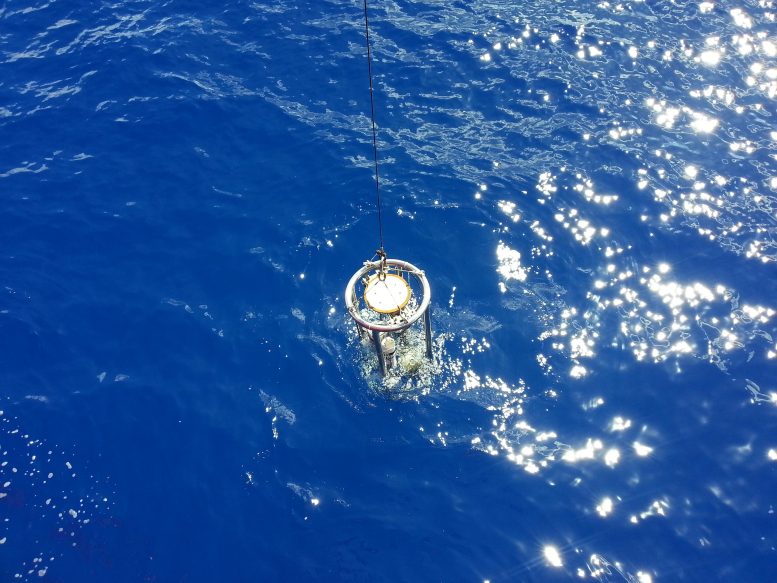
Despite the availability of satellite technology, a simple 19th century tool called the Secchi disk is still useful for ocean scientists to measure the concentration of microscopic algae called phytoplankton in the open ocean. Researchers found that Secchi disks performed almost as well as modern methods in monitoring phytoplankton abundance, indicating that Secchi measurements from more than a century ago can help scientists understand long-term changes in the ocean.
A simple 19th Century tool is still useful to ocean scientists in the age of satellites, new research published in Frontiers in Marine Science shows.
A Secchi disk – historically called a “dinner plate” by sailors – is used in the open ocean to measure concentrations of microscopic algae called phytoplankton.
It works by lowering the white disk into the water and recording the depth at which it disappears.
In the new study, a research team including the University of Exeter, Plymouth Marine Laboratory, Vrije Universiteit (Netherlands) and the Italian Institute of Marine Sciences (ISMAR) compared the performance of Secchi disks with satellites and high-performance chromatography.
Secchi disks performed almost as well as modern methods at monitoring phytoplankton abundance – meaning Secchi measurements going back more than a century can help scientists understand long-term changes in the ocean.
“Phytoplankton produce half the world’s oxygen and form the base of ocean food webs, so monitoring them helps us track everything from climate change to the health of ecosystems,” said Dr. Bob Brewin, from the Centre for Geography and Environmental Science on Exeter’s Penryn Campus in Cornwall.
“New technology undoubtedly gives us new opportunities, but our study shows Secchi disks do a good job of estimating chlorophyll (a way of measuring phytoplankton abundance) – which means we should be able to integrate data from the past with modern measurements.
“This gives us a priceless source of long-term data on how our oceans are changing.”
Secchi disks are still used all around the world to monitor ocean biomass and water quality, and co-author Dr. Jaime Pitarch, from ISMAR, said the findings support their continued use.
“It’s a simple, cheap tool, but our research shows it’s also remarkably effective,” he said.
In fact, researchers including Dr. Brewin at Exeter, are working on a project that will use 3D-printed Secchi disks to monitor water quality in lakes in India and Africa, and coastal regions of the US.
Prior to the 1850s, mariners used a variety of objects (in the same way as Secchi disks) to help with navigation, including cloths, pans, and plates.
It was the Vatican astronomer Angelo Secchi, invited by the Papal Navy Commander Alessandro Cialdi to join a scientific cruise to study the murkiness of the sea in 1865, who standardized the method.
The paper, published in the journal Frontiers in Marine Science, is entitled: “Evaluating historic and modern optical techniques for monitoring phytoplankton biomass in the Atlantic Ocean.”
Reference: “Evaluating historic and modern optical techniques for monitoring phytoplankton biomass in the Atlantic Ocean” by Robert J. W. Brewin, Jaime Pitarch, Giorgio Dall’Olmo, Hendrik J. van der Woerd, Junfang Lin, Xuerong Sun and Gavin H. Tilstone, 7 March 2023, Frontiers in Marine Science.
DOI: 10.3389/fmars.2023.1111416
The measurements in the new study were collected on Atlantic Meridional Transect cruises. A UKRI Future Leader Fellowship funds Dr. Brewin’s work.